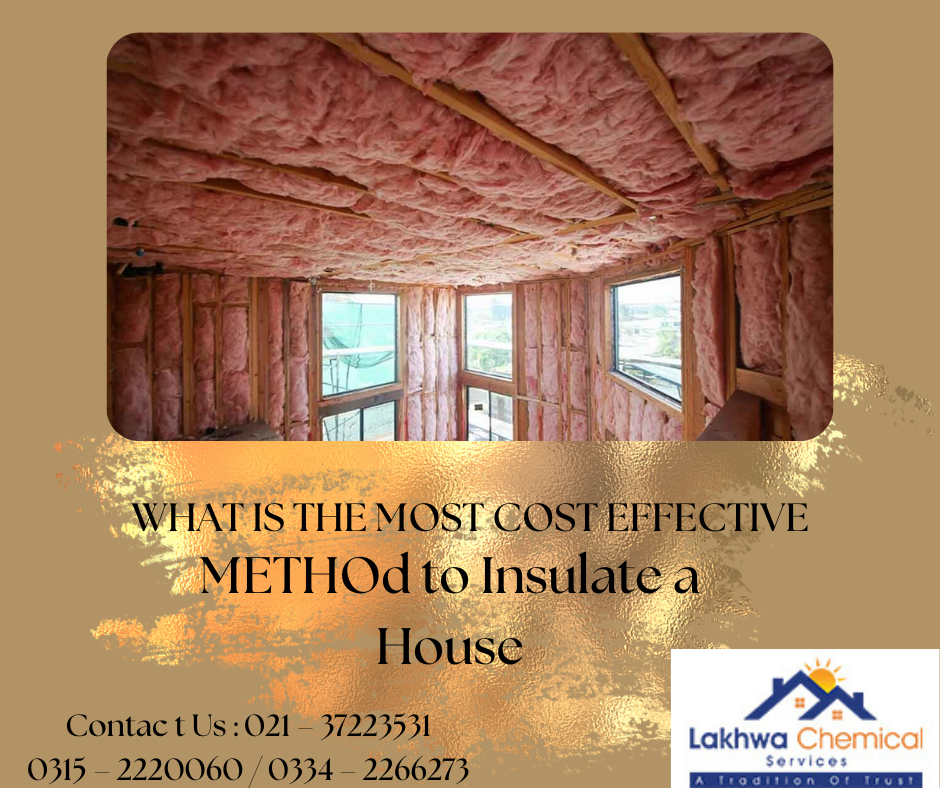According to a renowned waterproofing expert, “Insulating your house with high-quality insulation products is one of the best investments you can make”. Covering key areas, such as attics (25% of heat transfusion), floors (10% of heat transfusion), windows (35% of heat transfusion), and walls (20% of heat transfusion) is necessary for improving comfort and enhancing energy-efficiency. Maximize comfort and energy efficiency: insulate your house with our expert services.
With the availability of various insulating materials, it is challenging to determine the most inexpensive one. On the contrary, factors such as insulation type, installation costs, long-term savings, and overall effectiveness can help in determining the best covering for your premises.
Heat-Insulating Materials
Fiberglass Insulation
Fiberglass is one of the most popular materials for insulating closed structures. It contains glass fibers and air pockets that help reduce heat transfer and improve energy efficiency. This material is available in two categories: Batts and loose-fill. Fiberglass insulation is affordable, readily available, and easy to install.
This type of insulation is used in locations, such as homes, offices, and shopping malls. While fiberglass insulation may not provide the highest R-value (a measure of insulation’s effectiveness), its low initial cost and long-term benefits make it a cost-effective choice.
N.B. The cost of fiberglass insulation is Rs. 300-500 per sq. ft.
Read More
What is the Difference Between Sealant and Waterproofing?
What is Negative Side Waterproofing?
Different Types of Water Leaks
Cellulose Insulation
Cellulose insulation is an effective option for small-scale lodgings. It is made from discarded (recycled) materials, typically paper, present in high concentrations (85%). Cellulose insulation is blown into walls, attics, and other enclosed spaces, ensuring comprehensive coverage. Its high density and ability to fill small gaps and crevices make it an excellent insulating material. Although cellulose may have a slightly higher initial cost compared to fiberglass, its superior properties and long-term savings justify the investment.
N.B. The cost of cellulose insulation is Rs. 500-1500 per sq. ft.
Spray Foam Insulation
Spray foam insulation is composed of polyurethane, a plastic compound that expands upon application and creates an airtight seal. Spray foam insulation is excellent for preventing air leakage and providing superior thermal insulation. While spray foam has a higher upfront cost, it renders substantial long-term savings due to its high R-value and energy-saving attributes. It can be applied to hard-to-reach areas, ensuring wide-area coverage.
N.B. The cost of spray foam insulation commences from Rs. 100 per sq. ft.
Characteristics of Insulating Materials
R-value
During the evaluation phase, it’s important to consider the R-value (thermal resistance) of heat-containing materials. While higher R-values may imply greater effectiveness, it’s crucial to strike a balance between cost and energy savings. In other words, investing in materials with higher R-values may not yield significant additional benefits if initial costs are excessively high.
Read More
Which is the Cheapest Way to Waterproof a Bathroom?
What is the Difference Between Moisture Barrier and Waterproofing?
Which is the Cheapest Waterproofing Method?
Low Permeability
Insulating materials often exhibit low permeability to gases and liquids, preventing unwanted material penetration. When insulating materials have low permeability, they are less likely to allow the flow of external elements through their structure, which is critical for electrical insulation, material stability, contamination prevention, and more.
Sound Insulation
Insulation materials absorb and dampen sound waves, restricting noise transmission effectively. They have excellent acoustic properties, high density, and porous structures that dissipate sound energy. Such materials are valuable in construction, automotive, and industrial applications.
Conclusion
To insulate a house, you need to address various factors, such as insulation type, installation costs, and long-term savings. Select the best insulating material (fiberglass, cellulose, or spray foam) for a warm and cozy internal atmosphere. Conducting a home energy audit and targeting specific areas for insulation upgrades can optimize cost-effectiveness. Contact a reliable firm like Waterproofing.pk in this regard. Lastly, explore different government incentives and rebates to further enhance the cost-effectiveness of insulation projects.


